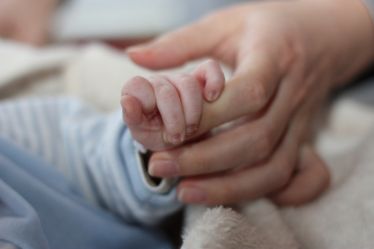Some frequently asked questions about christenings

1. What is the difference between a baptism and a christening?
There is no difference between a christening service and a baptism service. Some churches will use the word 'baptism' and some the word 'christening'. Babies are 'baptised' during a 'christening' service just as couples are 'married' during a wedding service.
Christening is a traditional English word which means to become a member of the Christian church. Baptism means to be immersed in water. During a christening service a baby or child will be baptised with water and welcomed into the community of the local church.
2. What is baptism?
"Baptism marks the beginning of a journey with God which continues for the rest of our lives, the first step in response to God's love." It is also a celebration, a time to come together with family and friends; remembering that your child is loved by God, is part of a wider community and has a place with God's people
3. What happens in the service?
Christenings are services replete with symbols for new life. At your baby's christening water will be blessed and used to pour on the baby's head. The baby will be signed with the cross, a special oil may be used for this, and a candle may be given. Godparents and parents will make promises on behalf of the baby, and prayers will be offered for the baby and the family. There may also be readings and hymns, which you may be able to choose.
4. Does a christening give my baby a name?
No. Your baby's name is given when you register the birth. During the baptism, the baby's name will be used often, and when the water is poured over the child's head, the vicar will always use the name.
5. Who is allowed to have a christening service?
The Church of England welcomes all babies, children and families – whatever shape that family takes. You do not have to be married to ask for a christening for your child. You do not have to be an active churchgoer – as parents, you do not even have to have been christened yourselves. Everyone is welcome at their local church.
6. How much does a christening service cost?
The good news is that a christening service is free. There may be costs for a family party, for gifts, for christening robes – but the church is free.
7. Where can I hold the christening?
You can have your baby christened at your local parish church. If you want to have the christening at a different church, for example, where you grew up or where you were married, you will need to talk to the vicar at that church.
8. When can I have a christening?
You can have your baby or child christened at any age. There is no upper age limit, but after about the age of seven your child should be able to make the promises for themselves.
The service is usually held as part of a main Sunday service in the local church, but there are also opportunities to have a service at a different time, again usually on a Sunday. Talk to the vicar, and ask their advice.
9. What about godparents?
The involvement of godparents can be one of the most joyful parts of the christening. Godparents are not necessarily the people who will care for your child should anything happen to you. Rather they should be people who will be there for your child and help them think about the bigger questions in life - questions of love, hope and faith.
Every child should have no fewer than three godparents, at least two of the same sex as the child. Parents may be godparents for their own children, providing they have at least one other godparent.
Godparents must be baptised themselves and old enough to make some serious promises on behalf of the child.
10. How do I arrange a christening?
Simply contact the vicar of the church where you want to hold the christening and ask for advice.
You can find your local Church of England parish using our website "a church near you" at: www.achurchnearyou.com











